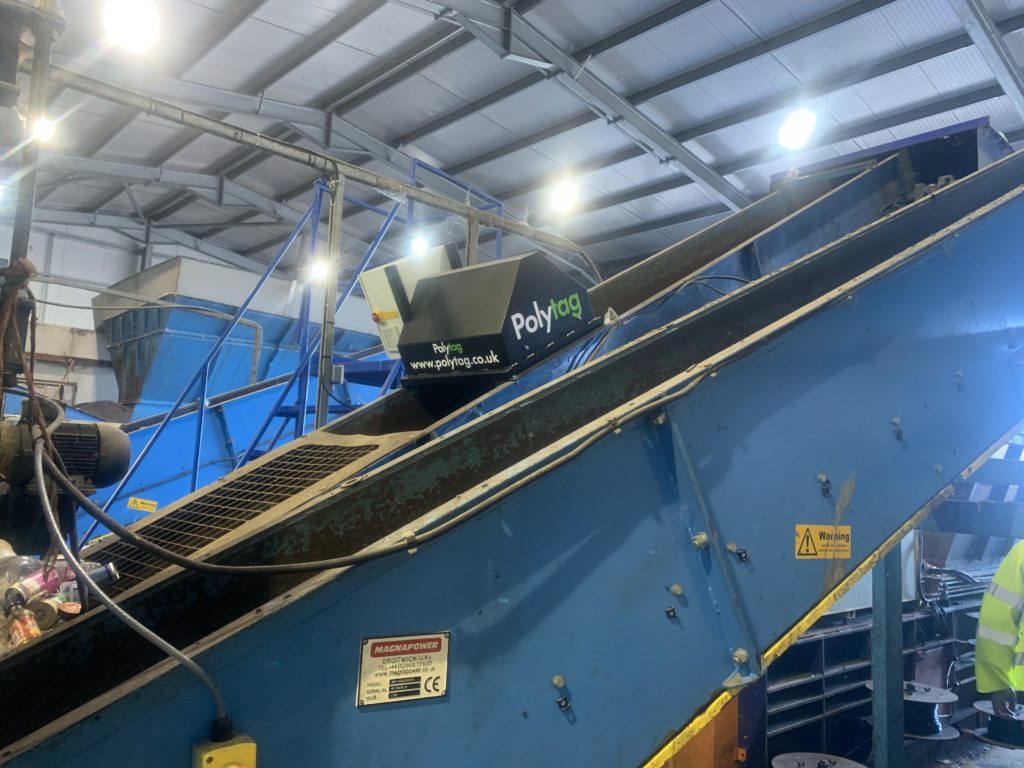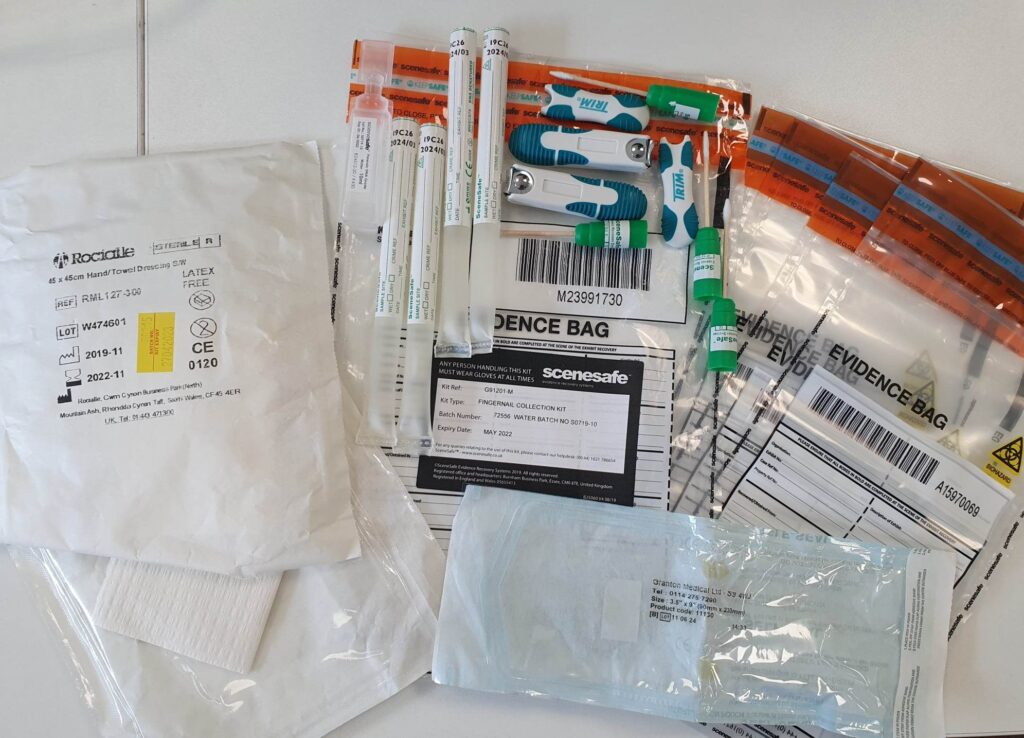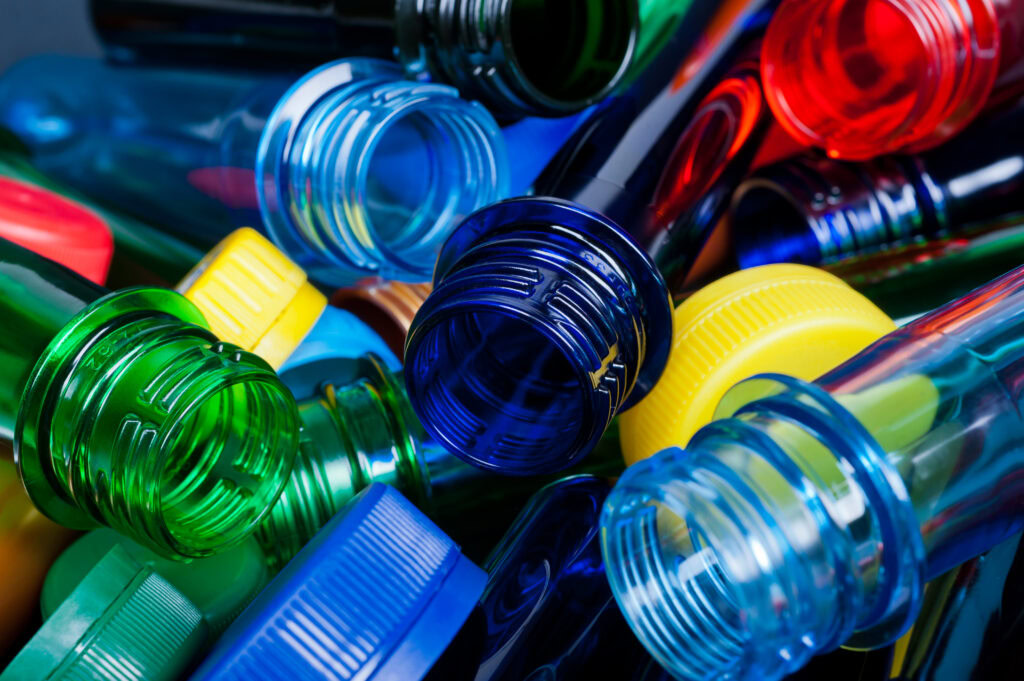The trial, which will take place in North Wales between the first and second quarter of next year, will use Polytag’s ultraviolet (UV) tag reading technology in a bid to enable Co-op to acquire data including the exact number of plastic containers sorted and handled at material recovery facilities (MRFs).
During the trial, invisible UV tags will be printed on to the labels of Co-op’s two-litre own-brand spring water bottles.
When a bottle reaches the Abergele Recycling Centre, its UV code will be read by specialist equipment fitted to the sorting machines.
The bulking centre at the Abergele facility, which Bryson Recycling operates on behalf of Conwy county borough council, processes packaging residents place into kerbside household recycling bins.
The data collected will be uploaded to Polytag’s cloud-based analytics dashboard, providing Co-op with real-time insights on packaging lifecycles.
Matt Hood, managing director of Co-op Food, said: “We all have our part to play when it comes to recycling and, as a retailer, we want to gain a greater understanding on a product’s journey in the recycling chain to help paint a clearer picture and support future traceability.
“This new trial will enable Co-op to gather valuable insight to provide guidance and measurement for future initiatives to encourage more people to recycle and it will also support the industry with true benchmarks for recycling rates in the UK for the very first time.”
UV tags
Polytag says it is working with governments and waste handling businesses to extend the roll-out and installation of more UV tag readers across the country.
This trial will enable brands to stop guessing and start knowing where and when their packaging is disposed of and recycled
– Alice Rackley, Polytag’s CEO
Doing so will enable brands and retailers to understand better if their products are being recycled, Polytag says, as well as helping them measure the success of initiatives designed to improve recycling rates over time.
Alice Rackley, Polytag’s CEO, said: “This trial will enable brands to stop guessing and start knowing where and when their packaging is disposed of and recycled – a crucial step towards a packaging circular economy.
“We’re absolutely delighted that Co-op has agreed to work with Polytag to continue to develop and deliver technology that will enable us to all recycle more, together.”
Ms Rackley told letsrecycle.com that Co-op chose two-litre water bottles because they hypothesised that the larger format water was consumed in the home rather than on-the-go and therefore has a higher chance of being recycled.
Co-op is keen to tag other formats in the future to test this theory, Ms Rackley said.
She added that waste management company Biffa had confirmed that it would install a UV scanner at its Teesside facility next year, potentially leading to “nationwide data collation capabilities”.
Wells Farm Dairy
Polytag’s latest announcement follows hot on the heels of the QR code printing pilot the recycling technology company ran in partnership with Wells Farm Dairy in August.

Polytag generated 40,000 unique QR codes and printed them on a designated white space on the labels of the dairy’s milk bottles.
Mobile users across the UK scanned more than 2,000 of the QR codes, Polytag says, and analytics relating to reach and engagement were captured and displayed on a brand account dashboard.
Polytag also ran a kerbside DRS pilot in Conwy, North Wales, between June and July 2021, which saw a 97% participation rate (see letsrecycle.com story). Residents in Colwyn Heights, Conwy, were asked to scan QR codes on specially provided bottles before placing them in their usual kerbside recycling containers.











Subscribe for free